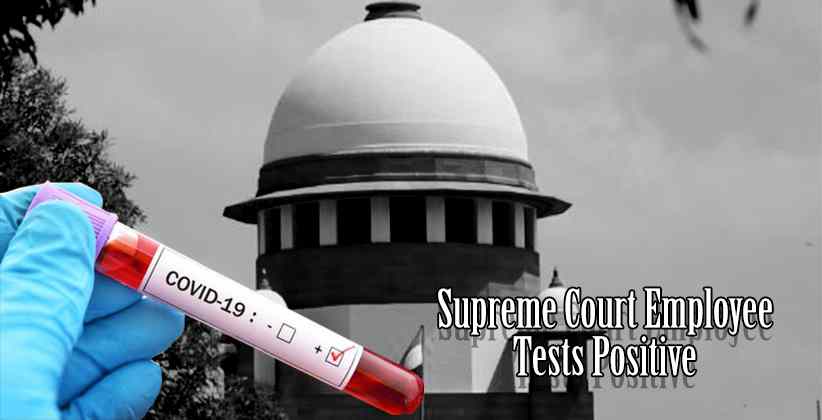The global pandemic recently found its way to the Supreme Court of India. As per a source, an employee of the Apex Court in Delhi tested positive for the coronavirus on 27th April 2020, causing much gloom over the countrys judicial operations.
The class IV employee of the Supreme Court had last come to work on 16th April 2020 and had even complained of fever for two days while reporting at the Apex Court. He had come into contact with two registrars at work who have now been quarantined till the 30th of April 2020.
The infected employees family has also been quarantined until the end of the month to ensure safety protocols. Additionally, efforts are now being made to screen all those who visited the court on 16 April 2020 and might have come in contact with the affected person. This is the first positive case of coronavirus at the country's Apex Court.
In following social distancing norms, the apex court has been functioning through videoconferencing since 23rd March 2020. Only urgent matters are being considered for hearing with journalists enabled to witness the trails from a common room on the premises of the apex court. So far, the Supreme Court has heard 593 matters via videoconferencing and has pronounced judgments in 215 of them since the lockdown was implemented on 24th April 2020.
With cases of coronavirus of the rise, Dr. S.D. Gupta, a public health expert and chairman of the Indian Institute of Health Management Research stated that Indias social structure is complicated and can cause substantially higher mortality rates due to the virus. However, he also noted that Indias extraordinary ability to mobilize in times of uncertainty, like eradicating smallpox, suggested that the country could defeat the coronavirus if strict measures were to be obeyed.
Commenting on the situation, The Chief Justice of the country (CJI), Sharad Arvind Bobde said that in case of a disaster like the coronavirus, the executive, legislature and judiciary have to work together. The CJI also said that the executive is better at dealing with epidemics or any disaster, but the judiciary must intervene if the executive endangers the lives of the people.
Meanwhile, COVID-19 cases have risen to 31332 as of 29 April 2020. The death toll has reached 1007 and 7696 cases have successfully recovered in the country.






